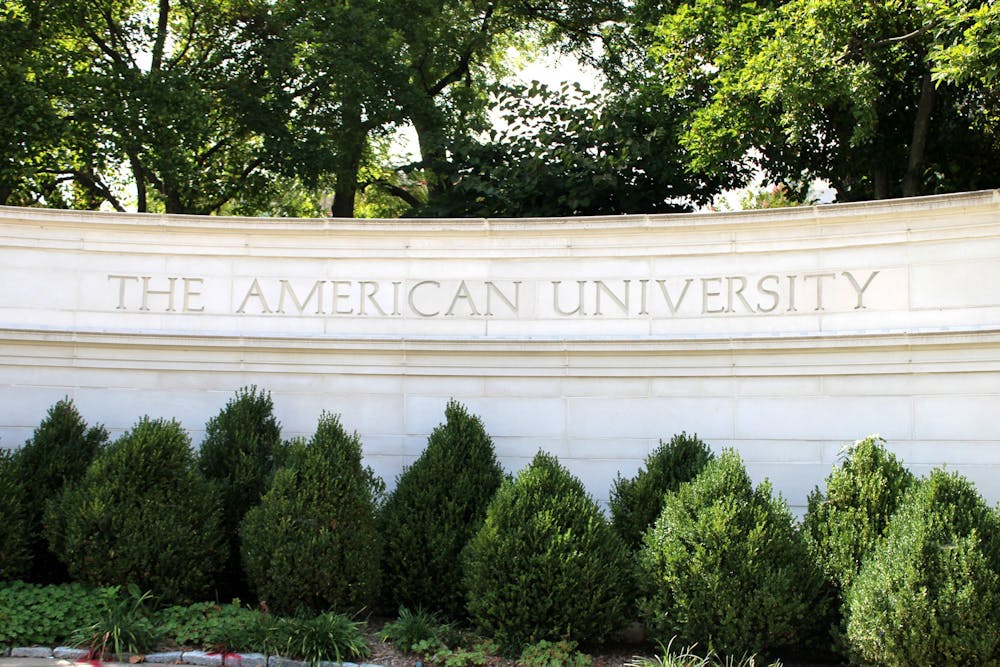American University’s President Jonathan Alger will launch a new strategic plan on Jan. 1, 2026 focused on “What can or should make AU distinctive,” replacing AU’s current strategic plan, Changemakers for a Changing World.
In an email to the AU community on Friday morning, Alger laid out the four phase planning process that aims to achieve goals such as building community and increasing civic pluralism. The process launched alongside a new website to track its progression and implementation over the next year.
The University launched the Changemakers plan in 2019 under former President Sylvia Burwell. The Change Can’t Wait campaign, launched to support the strategic plan, surpassed its $500 million fundraising goal in 2024.
In a Faculty Senate meeting Wednesday, Senate representatives and Acting Provost and Chief Academic Officer Vicky Wilkins discussed this year’s record high number of applications for first-year admissions, and how the University could help to improve retention of those that had applied.
In the past two years, AU has struggled with enrollment numbers, leading to a $80 million shortfall projected for the 2026 fiscal year and a $68 million short fall in total for 2024-2025 school year.
Wilkins said during the senate meeting that the new strategic planning process would include faculty views by implementing working groups and would take into account changes at the federal level under President Donald Trump’s administration.
Wilkins said Alger is taking a different approach to strategic planning than the University has had in the past, wherein plans were developed and then brought to working groups for advice.
She said “a large number of working groups” will help develop the plan from the beginning of the process and encouraged faculty to get involved.
“We really want to make sure that the ideas that we bring forward for a formulation of a plan over the next several months come from our community and represent the things that people are excited about, the opportunities they see and the improvements they really want,” Wilkins told members of the Faculty Senate.
The plan will develop in four stages throughout 2025. The first stage, which starts this month and stretches through May, will focus on organizing working groups to gauge what the AU community needs and expects from University administration.
Phase two will start over the summer and continue into October, focusing on taking ideas from the working group and fitting them under budgetary restrictions. The final briefing from the working groups will be brought to the Board of Trustees in phase three and subsequently launched in January 2026 after phase four.
The working groups’ research will focus on eight “core areas” outlined in the email: community building, civic pluralism, public service, academic innovation and experimentation, high impact experiential learning, achieving R1 status for AU, creating connections for AU students and alumni and improving operational infrastructure.
The Carnegie Classification of Institutions of Higher Education decides whether or not AU receives R1 status. The factors that decide R1 status include the number of PhD candidates at a university and the amount the university spends on research. Achieving this status means that AU would be considered a high performance research institution.
In the Faculty Senate meeting this week, discussion and anxieties emerged over whether or not AU would receive this status, as much of the research the University produces centers around inclusive principles challenged by President Trump’s administration.
Prior to Alger’s AU presidency, he served as president of James Madison University. Under his leadership, a strategic plan was created and implemented, and JMU was awarded a new Carnegie Classification of R2 Doctoral University with high research activity.
Along with R1 status, another goal Alger emphasized was “developing an inclusive community that represents the ideal of ‘We the People.’”
To implement these goals, the administration is currently accepting nominations to become a working group member, which is open to all students and faculty. These nominations are due by Feb. 16.
The end of the Changemakers campaign, started by Burwell, may signal a new era for the University, as Alger promised to work with the community to “chart our exciting future together.”
This article was edited by Abigail Hatting, Owen Auston-Babcock, Tyler Davis and Abigail Turner. Copy editing done by Luna Jinks and Olivia Citarella.





